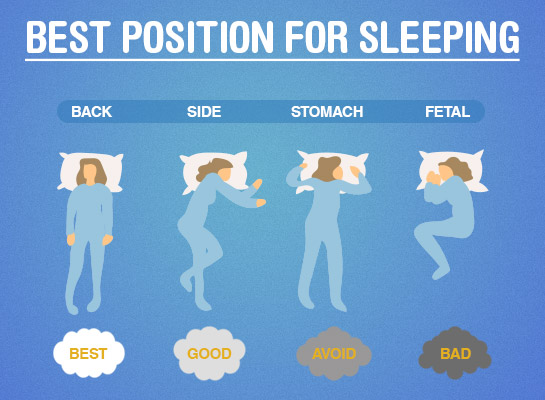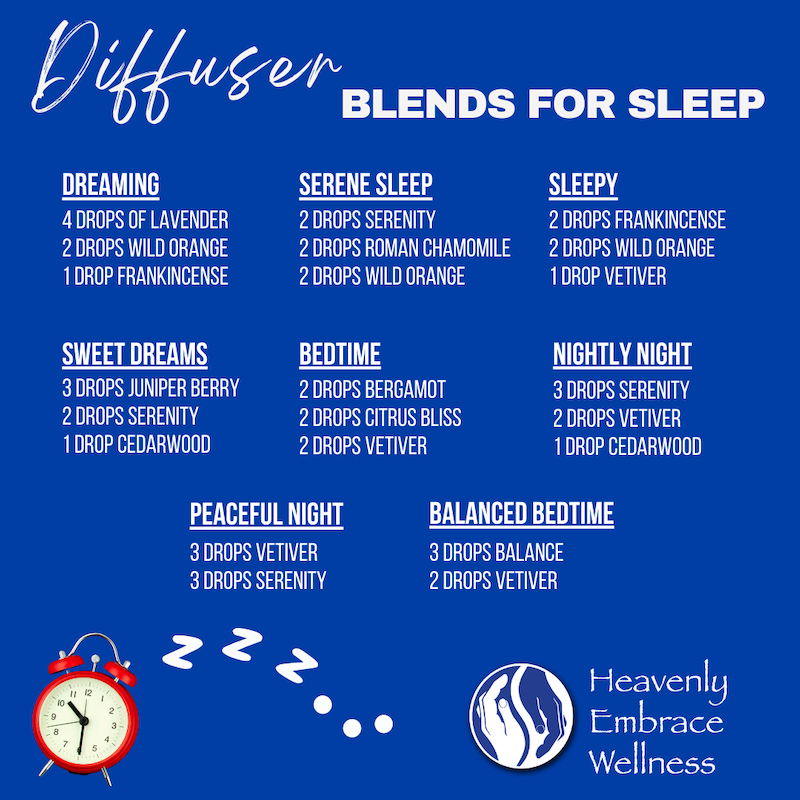The Best Sleeping Positions
There’s no doubt that sleep is a significant and important part of the human experience. Cultures around the world have understood how vital it is since the earliest days of human history. According to traditional Chinese medicine, sleep is essential for maintaining the balance of yin and yang within the body. Organs like the gall bladder, liver, and lungs are said to replenish the body when at rest during the night. Without good sleeping habits, it’s said that the body’s natural energies are drained and the quality of life is therefore decreased. Let’s review the importance of sleeping positions and the best sleeping positions for your health.
Sleep Better & More Comfortably
To keep your mind and body functioning its best, you need to be adequately rested. If you are waking up with pain in your body or finding your arms are falling asleep frequently, you may be experiencing spinal discomfort at night. Maybe it’s to to re-evaluate your sleeping habits, sleep hygiene, and the position you sleep in.
The position you sleep in can have an impact on the overall quality of your sleep, and can even affect your very bodily structure. To put it simply, there are some positions that work well and some you probably want to avoid.

Stomach Sleeping
Sleeping on one’s stomach is a common habit that can provide much comforting to the psyche, but it’s widely regarded as one of the worst sleeping positions especially if you suffer from past injury or arthritis in the neck region. While it can reduce snoring, it can also reduce the spine’s natural curve, leading to lower back pain over time. It also has the potential to cause pain throughout the back and neck, which can also lead to feelings of tingling or numbness in the arms or fingers, and generally reduces the quality of one’s sleep.
Side Sleeping
Slightly better than the stomach, sleeping on one’s side can also reduce sleep apnea and snoring with less risk of adverse effects. The side you sleep on plays a significant role here. Sleeping on the right side can worsen heartburn. Sleeping on the left, however, can put a strain on organs like the liver, stomach, and lungs. For best results, you should have a pillow thick enough to tilt your head above your shoulders. Furthermore, if possible position a pillow between your legs.
Back Sleeping
By far the best way to sleep is on your back. This makes it easier for the head, neck, and spine to align naturally and comfortably. Without the added pressure to your muscles and bones, you’re in the best position to sleep well and avoid muscle pain.
Sleeping habits can be long-lasting and difficult to break, but with persistence can be changed. Time and effort spent sleeping in a better position can have a tremendous impact on your health and well being.
What is Sleep Hygiene?
Obtaining healthy sleep is important for both physical and mental health, improving productivity and overall quality of life. Good sleep hygiene is all about putting yourself in the best position to sleep well each and every night.
Strong sleep hygiene means having both a bedroom environment and daily routines that promote consistent, uninterrupted sleep. Keeping a stable sleep schedule, making your bedroom comfortable and free of disruptions, following a relaxing pre-bed routine, and building healthy habits during the day can all contribute to ideal sleep hygiene.
You might not be able to control the factors that interfere with your sleep. However, you can adopt habits that encourage better sleep. Here are a few tips that may help make your sleep more calm and free of disruptions:
- Create a Sleep Schedule: The recommended amount of sleep for a healthy adult is at least seven hours. Most people don’t need more than eight hours in bed to be well rested.
- Pay Attention to Food and Drink: Don’t go to bed hungry or stuffed. In particular, avoid heavy or large meals within a couple of hours of bedtime. Discomfort might keep you up. Nicotine, caffeine and alcohol deserve caution, too. The stimulating effects of nicotine and caffeine take hours to wear off and can interfere with sleep. And even though alcohol might make you feel sleepy at first, it can disrupt sleep later in the night.
- Have a Comfortable Mattress and Pillow: Your sleeping surface is critical to comfort and pain-free sleep, so choose the best mattress and best pillow for your needs wisely. Shop around and try different options.
- Use Excellent Bedding: The sheets and blankets are the first thing you touch when you get into bed, so it’s beneficial to make sure they match your needs and preferences.
- Set a Cool Yet Comfortable Temperature: Fine-tune your bedroom temperature to suit your preferences, but err on the cooler side (around 65 degrees fahrenheit).
- Regular Physical Activity: Including physical activity in your daily routine can promote better sleep. However, avoid being active too close to bedtime. Spending time outside every day might be helpful, too.
- Block Out Light: 1. Use heavy curtains or an eye mask to prevent light from interrupting your sleep. 2. Avoid prolonged use of light-emitting screens just before bedtime. 3. Dim the lights as bedtime approaches. Orange or red shaded light bulbs or the Himalayan salt lamps will signal your brain it’s pass day time.
- Drown Out Noise: Ear plugs can stop noise from keeping you awake, and if you don’t find them comfortable, you can try a white noise machine or even a fan to drown out bothersome sounds.
- Manage Stress and Worries: Try to resolve your worries or concerns before bedtime. Jot down what’s on your mind and then set it aside for tomorrow. Stress management might help. Start with the basics, such as getting organized, setting priorities and delegating tasks. Meditation also can ease anxiety.
- Try Calming Scents: Turn on a diffuser with calming scents, such as Lavender, Frankincense, Vetiver, Cedarwood, Balance Blend and Serenity Blend may induce a peaceful state of mind, emotional wellbeing and help cultivate a positive space for sleep. Doing calming activities before bedtime, such as taking an epsom salt bath or using breathing techniques, might promote better sleep.
Relieving Pain with Bodywork & Massage
Muscle pain while we sleep is never a pleasant experience. Whether it’s from the way we sleep or otherwise, it has the potential to significantly reduce our comfort, mood, and overall quality of life. While sleep, meditation & mindfulness and other self care practices like yoga can help with pain management, Massage therapy is another effective treatment option for pain.
Massage brings oxygen to your muscles, improves circulation which alleviates your muscle cramps & pain. It has the capability of reducing stress and anxiety by relaxing the body and lowering the excitement of the nervous system. It allows you to feel better and hopefully relaxed enough to get a good night’s sleep.
At Heavenly Embrace Wellness, we offer a range of massage and bodywork services to help you feel your very best. Contact us today to book an appointment and get started on improving the quality of your life for the better.
With much Love, Light and peaceful dreams,
Love & Light,
Liraz
Liraz Bergman-Turner is a Licensed Massage Therapist, Reiki Master & Reflexologist. She is the owner of Heavenly Embrace Wellness, a massage and energy healing practice in Boulder, CO.
Liraz is a gifted healer. Her massage was both strong and gentle, anticipating what was needed for each muscle. Her office is beautiful and relaxing. She has all the amenities for pampering and the strength for deep tissue. I loved the essential oils throughout. Highly recommend!
***Disclaimer***
These statements have not been evaluated by the Food and Drug Administration. This information is not intended to diagnose, treat, cure or prevent any disease. The information on this site is not intended or implied to be a substitute for professional medical advice, diagnosis or treatment. Please confirm any information obtained from or through this web site with other sources, and review all information regarding any medical condition or treatment with your physician. Never disregard professional medical advice or delay seeking medical treatment because of something you have read on this website.






